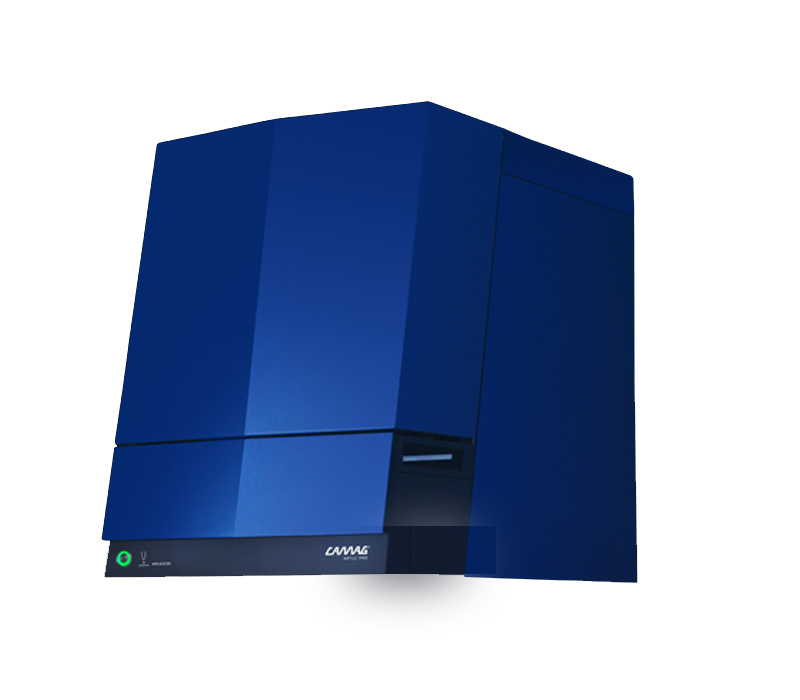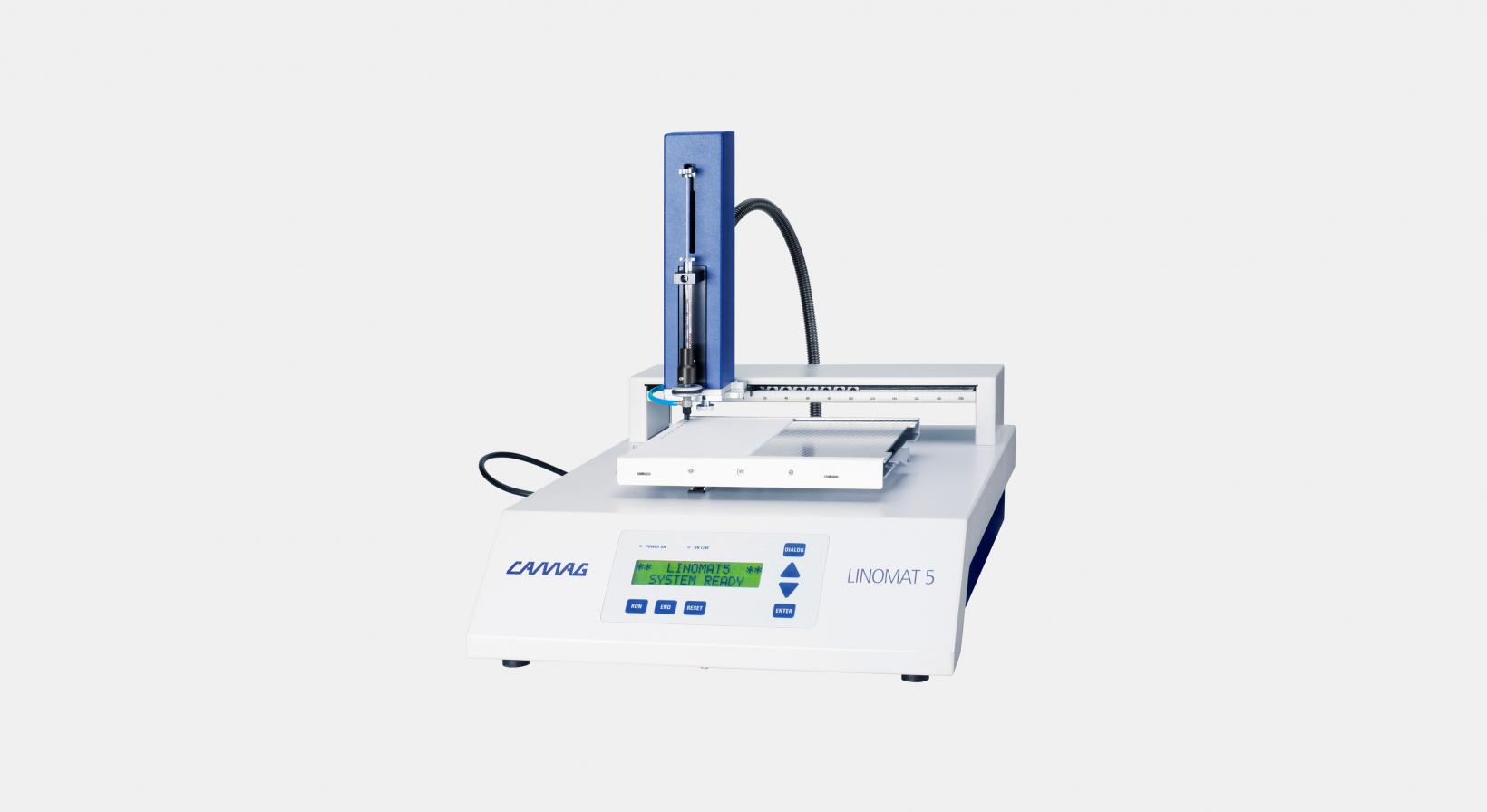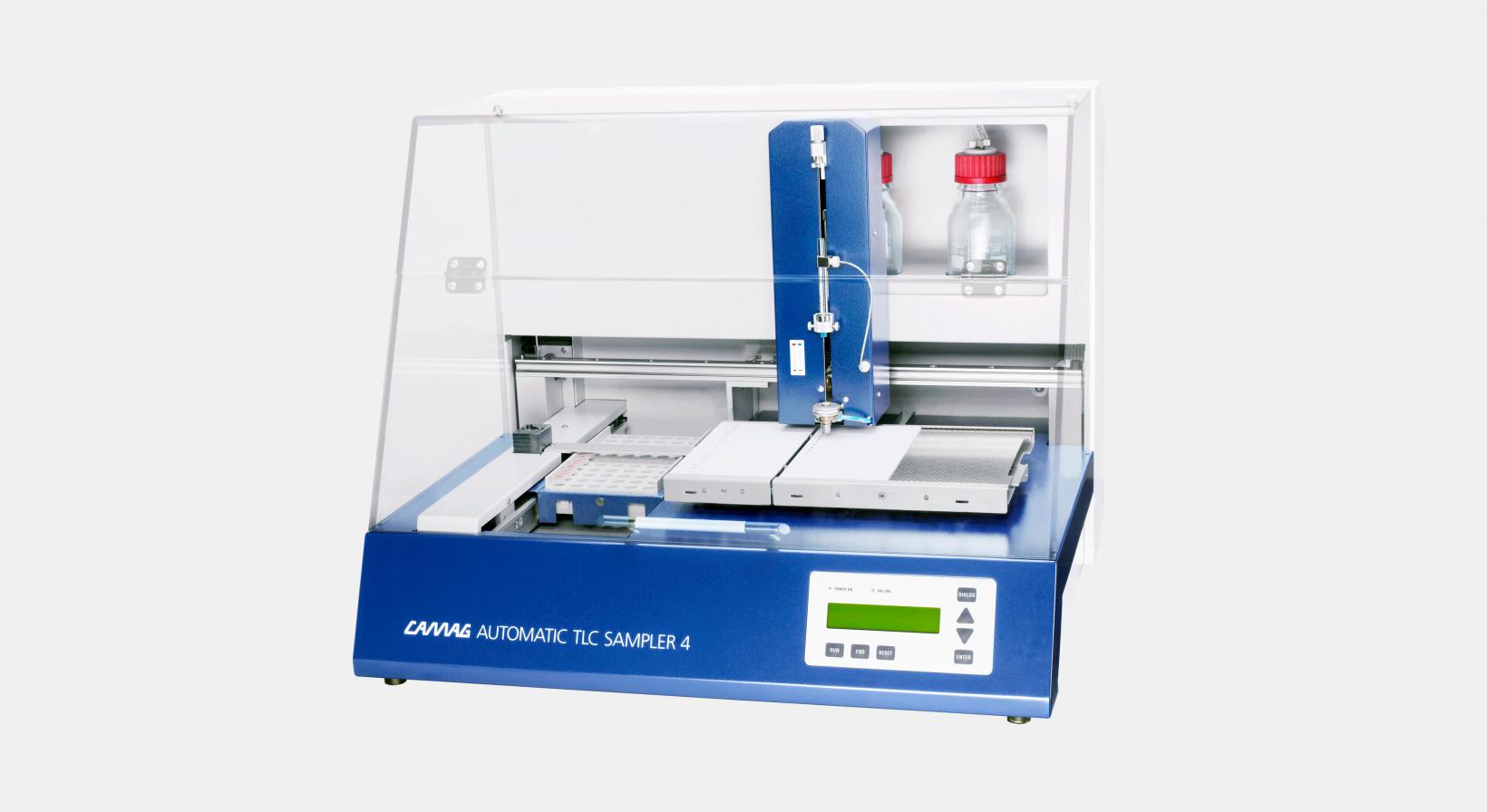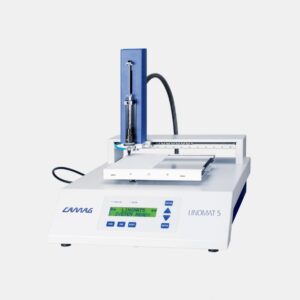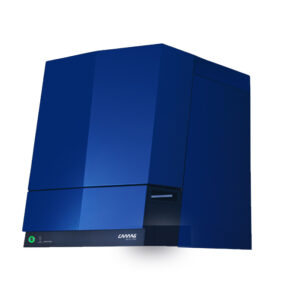HPTLC instruments for qualitative and quantitative analyses
Description
APPLICATION
|
The sample extracts are applied as bands onto the plate with a software-controlled applicator. Precision of the applied volume, exact positioning and compactness of application zone determine the quality of the final result. |
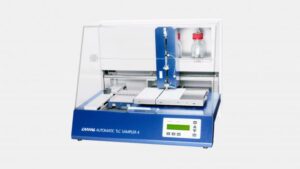
CAMAG® Automatic TLC Sampler 4 (ATS 4) |
DEVELOPMENT
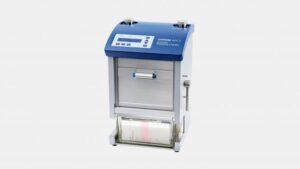
CAMAG® Automatic Developing Chamber 2 (ADC 2) |
Automatic development chambers allow to make the development step more reproducible and less dependent on human interaction. Chamber configuration, activation, developing distance, and final drying can be preset. The progress of the development step is monitored. |
DERIVATIZATION
|
Substances without chromophores or fluorophores can be visualized or made detectable through derivatization. The required reagents are transferred onto the chromatogram by automated spraying. |
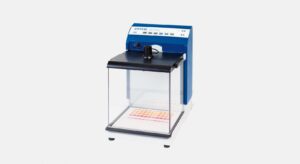
|
DETECTION
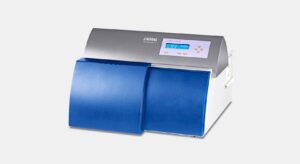
CAMAG® TLC Scanner 4 |
HPTLC chromatograms are captured images of the plates under white or ultraviolet light. For electronic image acquisition a digital camera captures visible polychromatic light. The obtained data can be edited, archived and evaluated. For quantitation densitograms or image profiles are used. |
MS-INTERFACE
|
TLC-MS coupling allows for verification of the chemical structure of analytes by Mass Spectrometry. Analytes can be directly eluted to an MS or the eluate can be collected for further analysis offline. |
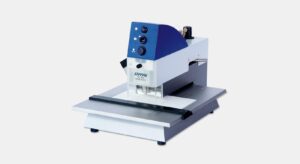
|
Software Integration
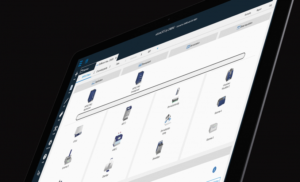 |
The HPTLC Software visionCATS organizes the workflow of the HPTLC analysis, controls the CAMAG instruments, and manages data evaluation. |
Complete Systems
|
An advanced HPTLC system for more demanding tasks consists of at least one instrument for the steps sample application, chromatogram development, derivatization, and detection. |
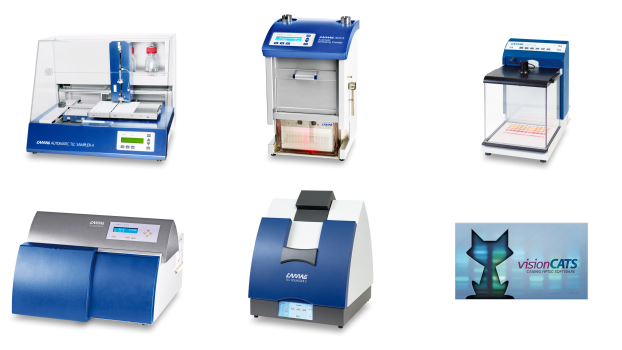 |

